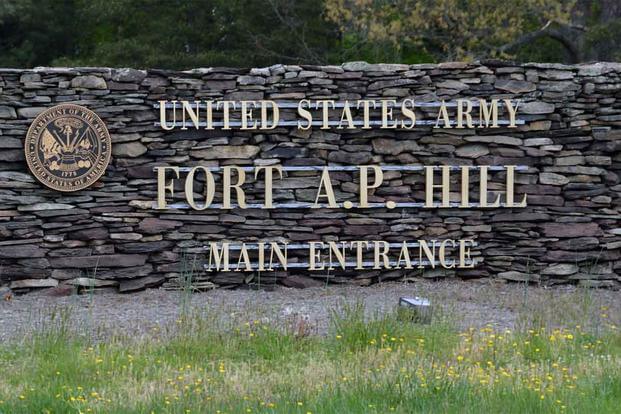The hotly debated issue of renaming 10 Army installations honoring Confederate generals was a key sticking point in the 2021 defense policy bill -- and may still earn the bill a veto from President Donald Trump.
But the full text of the National Defense Authorization Act conference report, released Thursday night, includes a requirement that the bases be renamed within the next three years -- and that all "names, symbols, displays, monuments, and paraphernalia that honor or commemorate the Confederate States of America" also be stricken. It also provides detailed plans for a commission that would execute this plan and work with local communities to determine fitting new names for the bases.
Read Next: The Marine Corps Is Considering Merging All Infantry Jobs Into Just One MOS
The bill, which comes in at roughly $732 billion and is 1,000 pages longer than last year's, faces another, unrelated veto threat from Trump, who urged lawmakers to include a repeal of Section 230, which provides some legal protections to online companies. The bill contains no such repeal.
And in a Dec. 2 press conference, White House spokeswoman Kayleigh McEnany reiterated Trump's opposition to renaming military bases, which he first expressed months ago.
"Our history as the Greatest Nation in the World will not be tampered with," Trump tweeted June 10. "Respect our Military!
In a Thursday evening briefing with reporters, committee officials declined to discuss what might happen
"This is the bill that's going to pass the house," a senior Democratic staffer for the House Armed Services Committee said "Then the president will do what the president will do and the leadership will decide ... should the president do anything other than sign the bill into law."
The bill now expected to go to the president will create an eight-member commission to develop the base renaming plan, with four members appointed by the defense secretary; and one each appointed by the chair and ranking member of the House and Senate Armed Services Committees.
The commission will be formed within 45 days of the NDAA's enactment, and hold its first meeting within 60 days, the bill states. By Oct. 11, 2021, the commission must deliver to Congress a written report that includes a list of all military property that needs to be removed or renamed; a cost estimate for carrying out the changes; and the decided-upon criteria for coming up with new names, where applicable.
The plan, the bill emphasizes, must also include "procedures and criteria for collecting and incorporating local sensitivities associated with naming or renaming of assets of the Department of Defense."
The commission will have a budget of $2 million to carry out its renaming task, the bill states; that money will be taken from the Army's fiscal 2021 Operations and Maintenance budget.
While the purge of confederate names includes everything from bases to ships, planes and streets, there's one defined exception: grave markers are exempted from the new legislation.
"Congress expects the commission to further define what constitutes a grave marker," the bill states.
In a statement released this week, Maryland Rep. Anthony Brown, the vice chairman of the House Armed Services Committee, celebrated the passage of the renaming provision.
"National security isn't simply defined by the planes and ships we buy -- but in the values we set for our military and ourselves," Brown, a Democrat and a prominent proponent of the renaming effort, said. "We cannot ask today's young servicewomen and men to defend our nation, while housing and training them and their families on bases honoring those who betrayed our country in order to enslave others."
In an October interview with Military.com, military historian Richard Kohn, professor emeritus of History in Peace, War and Defense at UNC-Chapel Hill, advocated for the formation of a committee, similar to that detailed in the NDAA conference report, to oversee a base renaming effort.
"[Such a] group must be diverse, must include people of all races and religions and backgrounds with some attachment or some knowledge to the service," Kohn said. "It ought to operate in a most transparent way, it ought to have hearings, it ought to hear from the local areas about to hear from the people serving today. This would be a large and difficult business, that if you don't do it, at least, to a major degree in the way I'm describing, you're just gonna stir up more anger and division. And we've got enough anger and division in this country."
-- Hope Hodge Seck can be reached at hope.seck@military.com. Follow her on Twitter at @HopeSeck.














